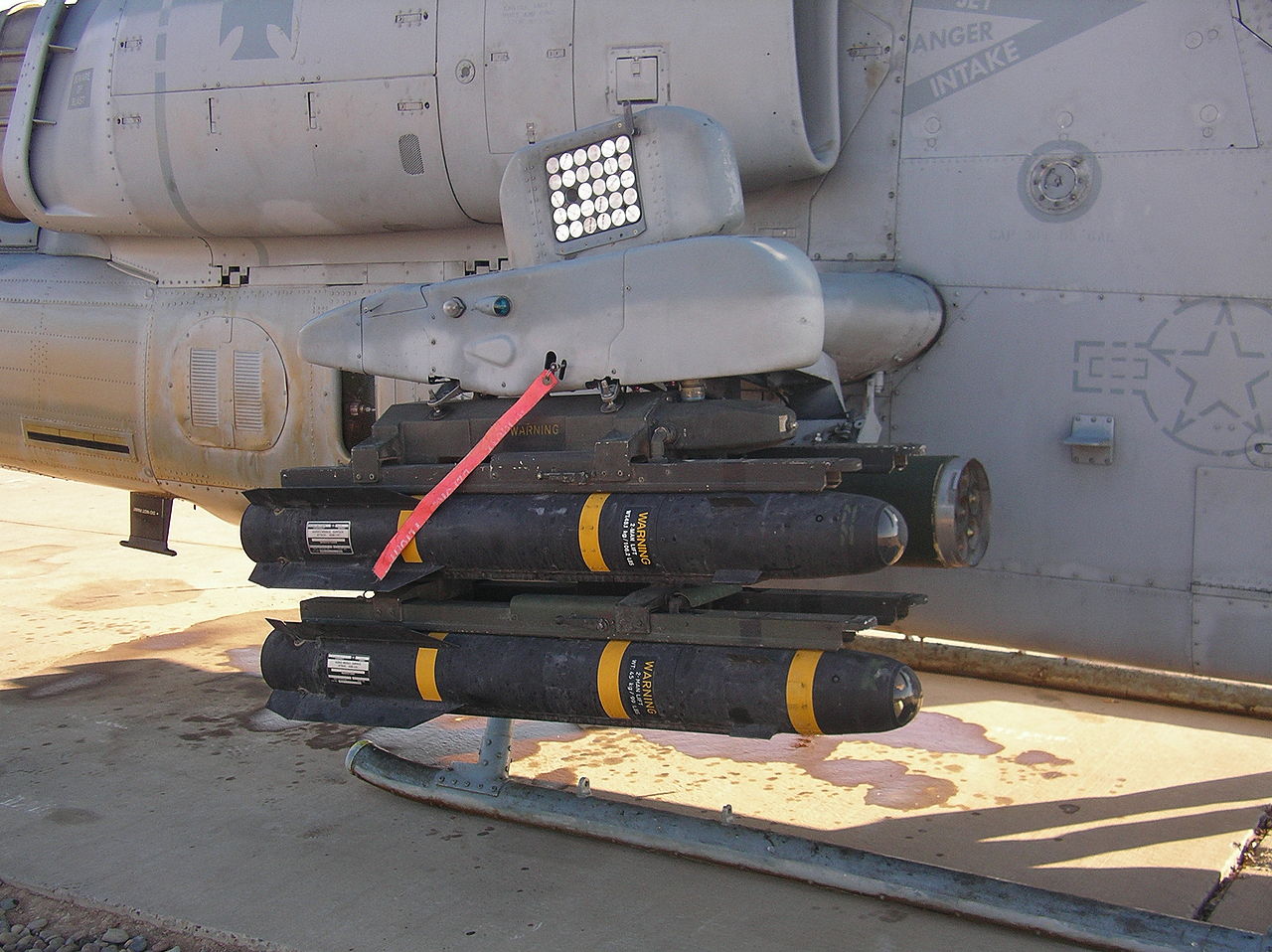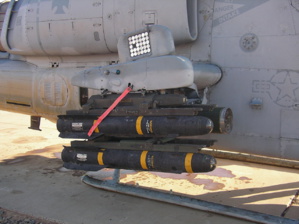"In a sense, we are now going through what has already been there. The troops should be ready." - said an analyst at Jefferies & Co Howard Rubel.
In the next few quarters, production of the largest military equipment manufacturers, such as Raytheon, Lockheed Martin, Boeing and a number of others, would be of great demand. Stocks of missiles, bombs and other explosives, spent in the course of operations against ISIS, are in need of replenishment.
As of April 12, Pentagon figures show the US forces caused 8825 strikes during the two-year campaign in Iraq and Syria. In addition, 2,714 more blows were delivered by allies. In general, all operations took $ 7 billion, or $ 11.6 million per day. This is about 70% of the Air Force’s daily cost.
Peter Arment, analyst at Sterne Agee CRT said that the "munitions burn rate", on a par with depletion of the missiles supply, will remain high. Ammunition level, the number of which initially reached more than 22,700 bombs and missiles, has rapidly been depleted since August 2014.
Pentagon’s budget for 2017 is $ 582.7 billion. Expenditures for operations against ISIL terrorists in Syria and Iraq are $ 7.5 billion. The officials plan to spend $ 13.9 billion on the acquisition of missiles and ammunition in 2017 – this is 17% more than last year.
The US Department of Defence gives priority to acquisition of JDAM type of ammunition, bombs and Hellfire missiles of Lockheed, as well as Tomahawk missiles of Raytheon company. In the IV quarter of 2017, Ministry of Defence intends to double the JDAM production to 36,500 units per year. In 2018, analysts expect expansion of Hellfire missile production by more than 20%.
Arment said that, whether it is products of Tomahawk Raytheon or JDAM of Boeing, the missiles always enjoy "high demand" not only from the US Air Force, but also from international customers.
Against the background of high demand for JDAM production both on domestic and international markets, its production grew by almost 80%. Boeing stated that it has the potential for further expansion.
JDAM production includes delivery of equipment and components from Honeywell, Rockwell Collins, Textron, and Lockheed Martin.
"Boeing is always ready to adjust the production of any weapons, including production of missile systems, so that customers can quickly complete their mission," - said Boeing’s representatives.
Last week, Lockheed signed a contract worth about $ 117 million, which includes an order for JASSM high-precision cruise missiles for the Air Force. Segment of Missiles and Fire Control brought 14% of total revenue last year.
Meanwhile, US House Armed Services Subcommittee on Tactical Air and Land Forces last week mentioned the situation with the weapons in the amendment to the law authorizing defence spending for 2017.
"We need to use the products, which will require expenses, and budget will not be able to fully reflect this need," - said Howard Rubel.
In addition, the Subcommittee has hinted at the possibility of resuming production of the F-22, which was discontinued in 2009. Implementations of the program’s objectives requires 750 more aircraft.
source: cnbc.com
In the next few quarters, production of the largest military equipment manufacturers, such as Raytheon, Lockheed Martin, Boeing and a number of others, would be of great demand. Stocks of missiles, bombs and other explosives, spent in the course of operations against ISIS, are in need of replenishment.
As of April 12, Pentagon figures show the US forces caused 8825 strikes during the two-year campaign in Iraq and Syria. In addition, 2,714 more blows were delivered by allies. In general, all operations took $ 7 billion, or $ 11.6 million per day. This is about 70% of the Air Force’s daily cost.
Peter Arment, analyst at Sterne Agee CRT said that the "munitions burn rate", on a par with depletion of the missiles supply, will remain high. Ammunition level, the number of which initially reached more than 22,700 bombs and missiles, has rapidly been depleted since August 2014.
Pentagon’s budget for 2017 is $ 582.7 billion. Expenditures for operations against ISIL terrorists in Syria and Iraq are $ 7.5 billion. The officials plan to spend $ 13.9 billion on the acquisition of missiles and ammunition in 2017 – this is 17% more than last year.
The US Department of Defence gives priority to acquisition of JDAM type of ammunition, bombs and Hellfire missiles of Lockheed, as well as Tomahawk missiles of Raytheon company. In the IV quarter of 2017, Ministry of Defence intends to double the JDAM production to 36,500 units per year. In 2018, analysts expect expansion of Hellfire missile production by more than 20%.
Arment said that, whether it is products of Tomahawk Raytheon or JDAM of Boeing, the missiles always enjoy "high demand" not only from the US Air Force, but also from international customers.
Against the background of high demand for JDAM production both on domestic and international markets, its production grew by almost 80%. Boeing stated that it has the potential for further expansion.
JDAM production includes delivery of equipment and components from Honeywell, Rockwell Collins, Textron, and Lockheed Martin.
"Boeing is always ready to adjust the production of any weapons, including production of missile systems, so that customers can quickly complete their mission," - said Boeing’s representatives.
Last week, Lockheed signed a contract worth about $ 117 million, which includes an order for JASSM high-precision cruise missiles for the Air Force. Segment of Missiles and Fire Control brought 14% of total revenue last year.
Meanwhile, US House Armed Services Subcommittee on Tactical Air and Land Forces last week mentioned the situation with the weapons in the amendment to the law authorizing defence spending for 2017.
"We need to use the products, which will require expenses, and budget will not be able to fully reflect this need," - said Howard Rubel.
In addition, the Subcommittee has hinted at the possibility of resuming production of the F-22, which was discontinued in 2009. Implementations of the program’s objectives requires 750 more aircraft.
source: cnbc.com






